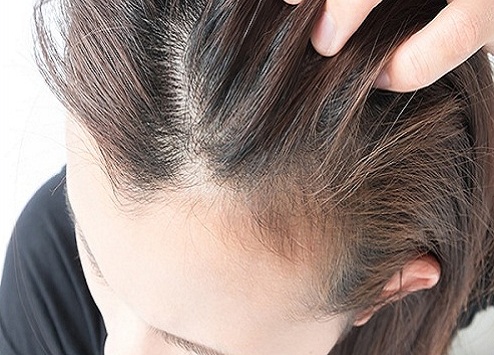
The factors that can contribute to telogen effluvium are:
• Hormonal changes (particularly post-pregnancy or around menopause),
• Periods of high stress and anxiety,
• Poor diet and sudden weight loss
• Excessive heat styling and overstyling,
• Illness, medication, and smoking.
Treatment
The treatment usually requires the patient to have the right nutrition, including a balance of proteins, vitamins, and minerals that are needed to support a healthy hair growth.
• Addressing nutritional deficiencies through diet:
* Protein provides the building blocks for hair to grow and the doctor will recommend a diet that includes plenty of protein-rich foods such as meat, eggs, fish, beans, grains, and nuts.
* Iron deficiency is also linked to telogen effluvium. The inclusion of iron-rich foods, including red meat, liver, dark green leafy vegetables, beans, and lentils, in the diet, might help in reducing hair loss.
* Complete hair growth supplements with a blend of biotin, vitamin C, zinc, iron, marine extracts, and other nutrients have also shown to be effective
• Platelet rich plasma therapy(PRP)
• Mesotherapy
• Hormone Replacement Therapy for people experiencing menopause
• Counseling support to manage stress or anxiety
© theskincentresirsa.com, All Right Reserved.
Designed By Camsol India